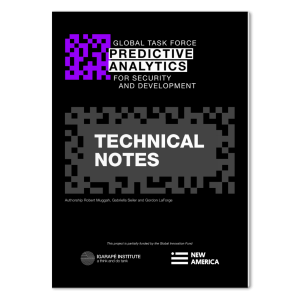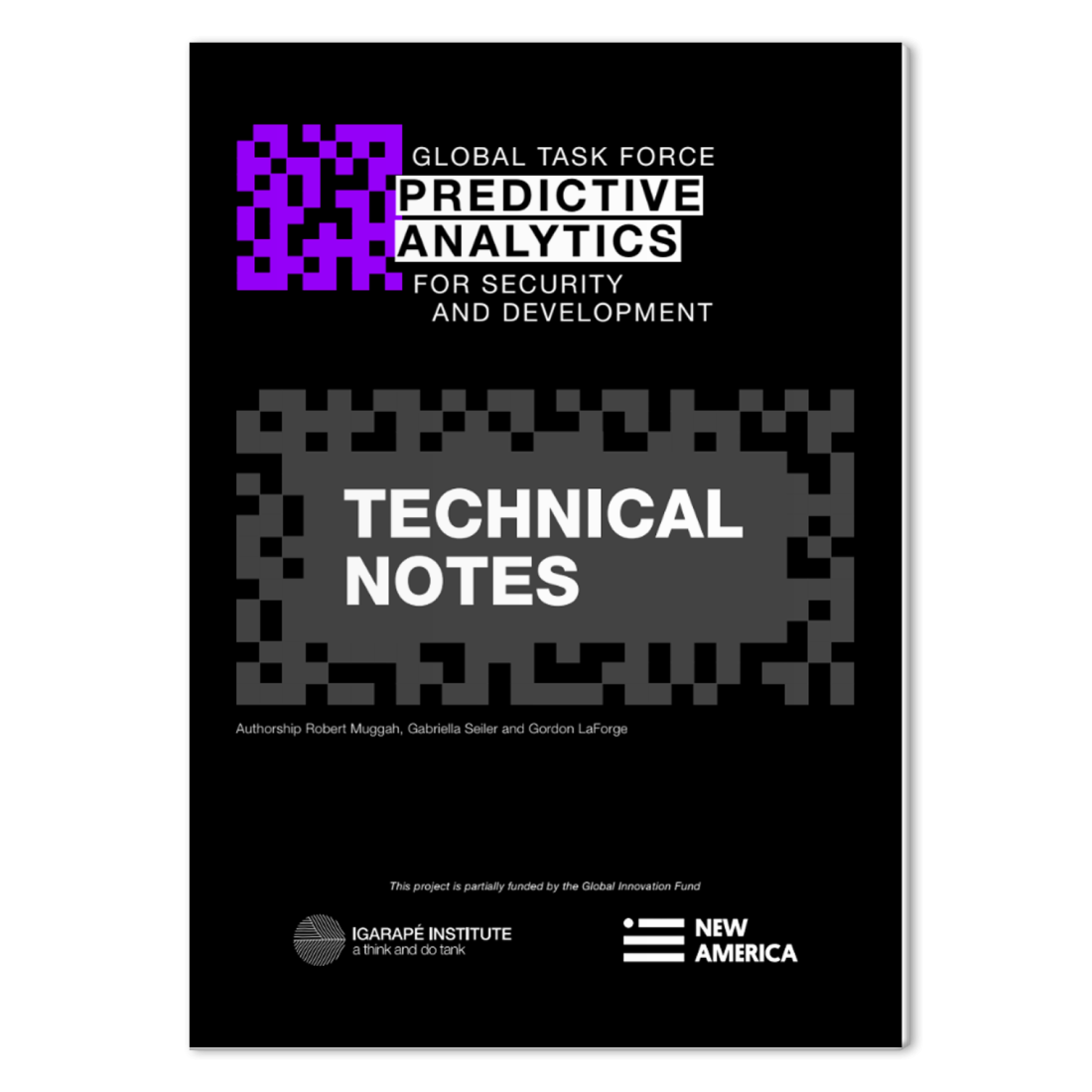TECHNICAL NOTES: Global Task Force on Predictive Analytics for Security and Development

The development of new predictive technologies is accelerating and transforming societies worldwide. As governments, companies and nonprofits rush to deploy predictive analytics to “optimize” everything from the deployment of policing resources to preventing illegal deforestation or improving public transit and energy consumption, the potential risks are not receiving the attention they deserve. This is especially the case in developing countries that are still in the midst of their own digital revolutions and have their own baseline needs, concerns, and social inequities to consider when deploying these tools.
The Igarapé Institute and New America believe crafting the appropriate frameworks will require forging a consensus on the basic principles that should inform the design and use of predictive AI tools. Moreover, while there have been several initiatives from civil society and intergovernmental organizations on ethical AI standards, the discussion has been concentrated overwhelmingly in North America and Western Europe. Governments in lower- and middle-income countries continue to struggle with consequential decisions about trade-offs of deploying predictive analytics.
This new Global Task Force aims to bridge this gap by convening digital-rights advocates, public-sector partners, tech entrepreneurs, and social scientists from the Americas, Africa, Asia, and Europe, with the goal of defining first principles
for the use of predictive technologies in public safety and sustainable development in the Global South.
Read the publication



